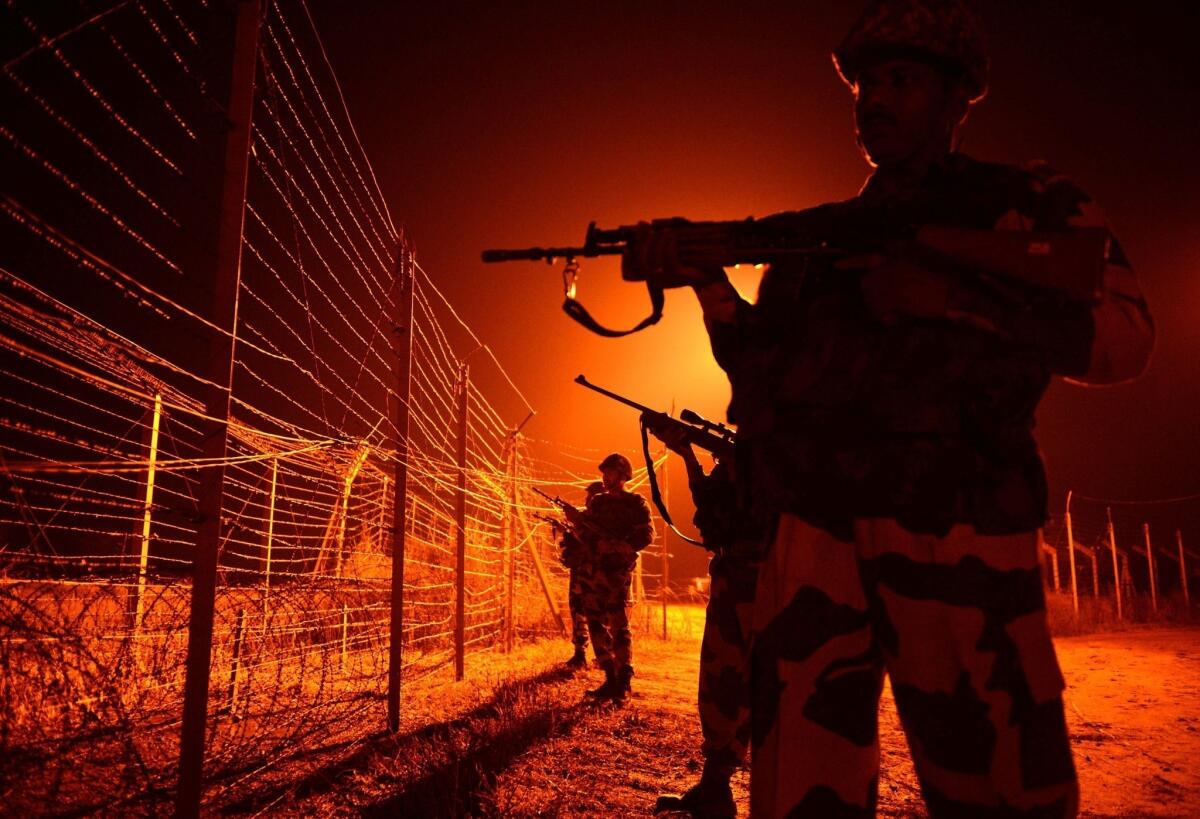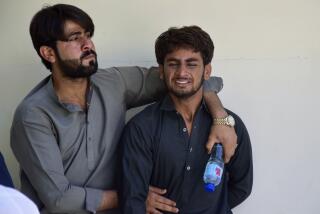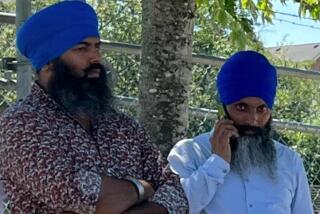Attack in Kashmir may threaten India-Pakistan peace talks

NEW DELHI -- Five Indian soldiers were killed Tuesday morning in divided Kashmir, along the de facto border between India and Pakistan, by men dressed in Pakistani military uniforms, Indian officials said, an attack that could undermine efforts by the two countries to ease tensions and resume peace talks.
Skirmishes between Indian and Pakistani soldiers along the so-called Line of Control, or LoC, occur periodically, but Tuesday’s attack was the most deadly in recent memory.
“We strongly condemn the incident,” Indian Defense Minister A.K. Antony told Parliament, adding that Pakistani incursion attempts are up 80% this year. “We’re ready to take all steps to protect the LoC.”
The killings in India’s Poonch area of Kashmir come three days after an attack on the Indian Consulate in the eastern Afghan city of Jalalabad, which some analysts said appeared to be a Pakistan-backed militant attack. Pakistan has denied any involvement in either attack.
Pakistan’s Foreign Ministry said in a statement that reports of a Pakistani military role in the latest shooting incident are “baseless and unfounded allegations,” adding that the country remains committed to a 2003 cease-fire agreement and further engagement with India.
The political fallout from the recent incidents could hamper efforts to improve relations, in keeping with a campaign pledge by recently elected Pakistani Prime Minister Nawaz Sharif, who as recently as Monday called on both countries to cut defense spending in the interest of peace.
As news of the latest attack spread, both houses of India’s Parliament were suspended briefly after raucous opposition lawmakers accused the government of being soft on terrorism.
Indian and Pakistani officials are scheduled to meet later this month to discuss water rights in advance of a planned meeting of their prime ministers in late September on the sidelines of the U.N. General Assembly in New York. Those meetings could be jeopardized.
“It is a sad incident,” Indian State Home Minister R.P.N. Singh told reporters in New Delhi. “If Pakistan wants better ties with India, then this is not the way.”
Indian analysts said the recent provocations follow a decades-old pattern whenever relations improve, in which a group of Pakistanis with vested interests attempt to derail peace efforts. “Hard-liners don’t want any let-up,” said Ramesh C. Chopra, an analyst and retired major general. “They don’t want any peace coming to the Kashmir Valley.”
Nasim Zehra, an independent security analyst based in the Pakistani capital of Islamabad, said attacks by insurgents wearing police or army uniforms have increased throughout the region and that it’s possible this occurred in Tuesday’s attack.
The idea that Pakistan’s military or government wants to fan regional tension when the nation has so many internal problems is outdated, she added. “That’s the Pakistan of the 1990s,” she said. “Things are different now. Everyone in Pakistan sees terrorism as an existential threat.”
Nor does Pakistan have a monopoly on hard-liners, said Islamabad-based security analyst Khalid Aziz. “There are hard-liners on both sides,” he said. “Hard-liners on the Indian side live to raise the dust. It’s a vote-getter, and they have an election coming.”
Indian media outlets, citing Defense Ministry sources, said approximately 15 Pakistani soldiers, insurgents or a combination of the two crossed into Indian territory just after midnight Tuesday in rainy weather and ambushed six soldiers with the Bihar Regiment’s 21st Battalion, killing five and injuring a sixth.
Shankar Roy Chowdhury, an analyst and retired Indian army chief of staff, said Sharif probably opposes such attacks but is powerless to do much given the clout of Pakistan’s army and intelligence agencies. “I wouldn’t be surprised if he didn’t even know about it,” he said.
The incident follows a period of protracted tension after a similar incident in January allegedly saw Pakistani insurgents kill two Indian soldiers, one of whom was beheaded. Pakistan denied any role in the killings. A tit-for-tat response ensued that saw six soldiers on both sides killed over a two-month period.
Analysts on both sides said it’s all too easy for both countries to fall back into distrust and recriminations given their troubled history.
“We should be thinking about the economy, trade, investment, greater cooperation,” said Pakistan’s Aziz. “There’s poor political leadership on both sides. This blame game is not good.”
ALSO:
Militants attack Indian consulate in Afghanistan
Terrorist leader’s order prompted diplomatic shutdowns
Egypt crisis: U.S. envoy meets with jailed Muslim Brotherhood leader
mark.magnier@latimes.com
Special correspondents Nasir Khan in Islamabad and Tanvi Sharma in New Delhi contributed to this report.
More to Read
Sign up for Essential California
The most important California stories and recommendations in your inbox every morning.
You may occasionally receive promotional content from the Los Angeles Times.










